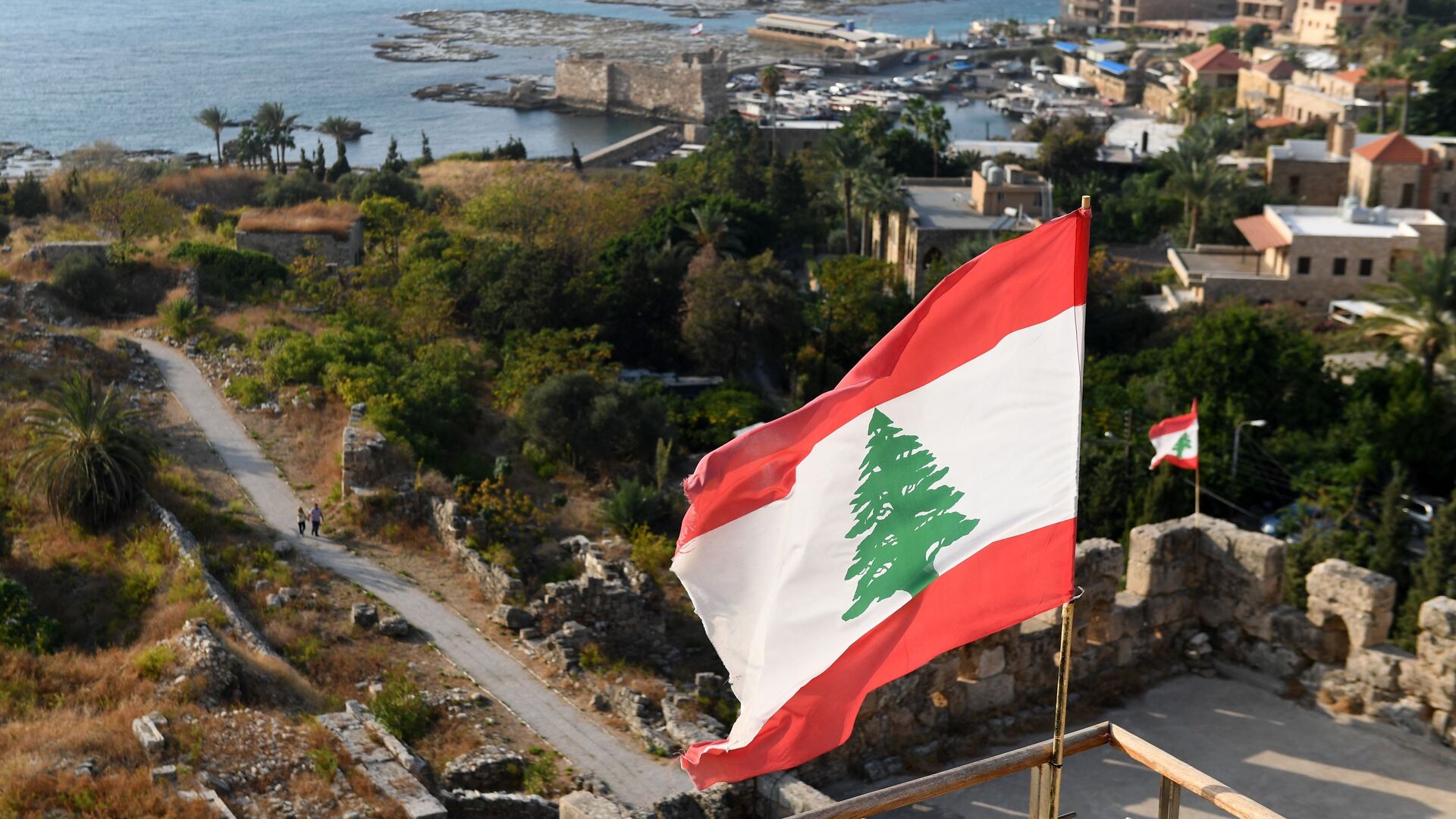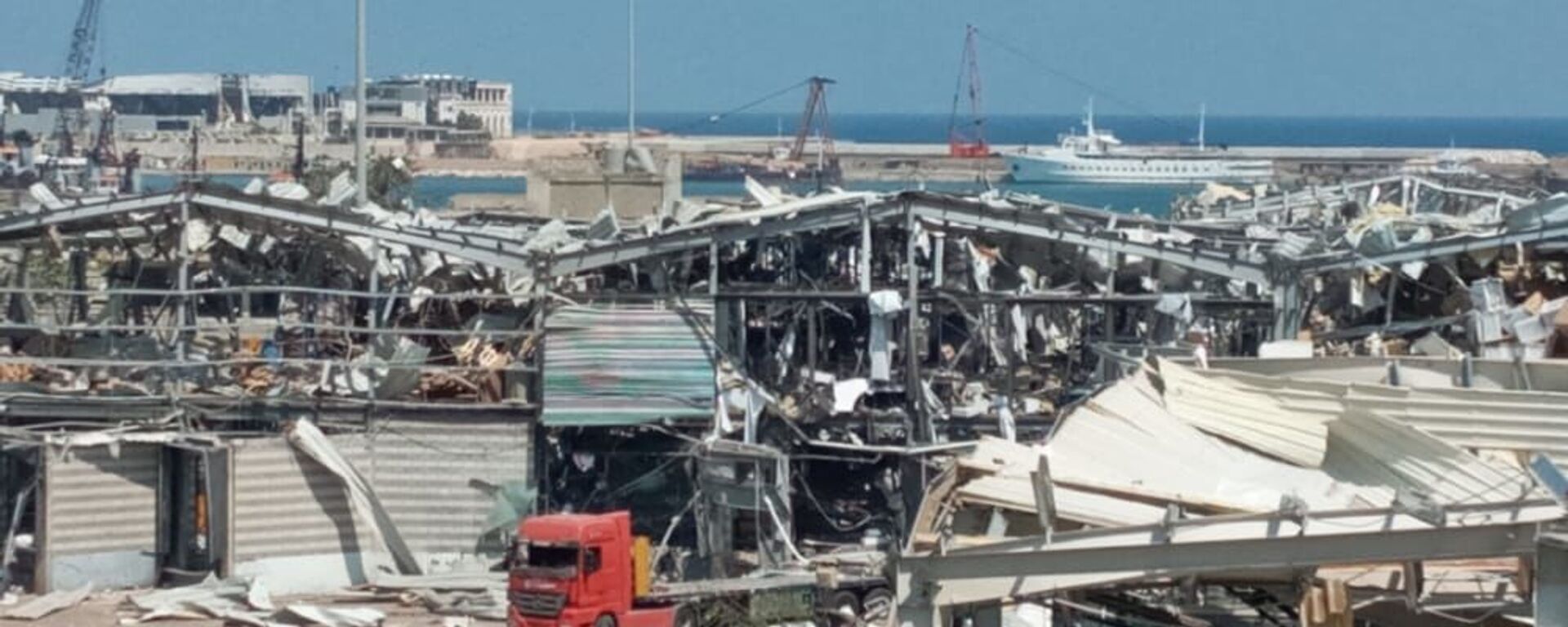https://sputnikglobe.com/20210923/lebanese-public-hopes-new-govt-will-tackle-economic-crisis-but-what-are-the-odds-itll-succeed-1089321195.html
Lebanese Public Hopes New Gov't Will Tackle Economic Crisis, But What are the Odds It'll Succeed?
Lebanese Public Hopes New Gov't Will Tackle Economic Crisis, But What are the Odds It'll Succeed?
Sputnik International
To keep the economy afloat, the Mediterranean nation needs billions of dollars in international assistance. But to unlock those funds it will have to implement... 23.09.2021, Sputnik International
2021-09-23T05:09+0000
2021-09-23T05:09+0000
2021-09-23T05:09+0000
middle east
lebanon
finance
imf
https://cdn1.img.sputnikglobe.com/img/107810/47/1078104725_0:174:3025:1875_1920x0_80_0_0_49df3bae8dddd1bbfaa14e33440b8733.jpg
On Monday, after the Lebanese Parliament approved the cabinet of Prime Minister Najib Mikati, many in Lebanon heaved a sigh of relief.New Government, New HopesAnd Ali Yahya, a Beirut-based political analyst, says that "most Lebanese people are amenable to the formation of any government, even if it includes individuals from the same corrupt political class as previous administrations", because they hope it will save them.The new cabinet has a lot on its plate. Nearly 80 percent of the country's population has hit hard times since the Lebanese pound lost some 85 percent of its value against the dollar at the beginning of 2019.Prices for basic items have soared, fuelling a car has become something akin to mission impossible, while electricity shortages have become a regular phenomenon that many Lebanese have already become accustomed to.Mikati's cabinet will be judged by its ability to solve these and other pressing problems that Lebanon is currently undergoing. Previous governments have failed in this endeavour, thereby adding to the political and economic instability in the country.IMF to the Rescue?This time around, however, the government might actually succeed, primarily because the cabinet has already approved the planned economic reforms of central bank chief Riad Salameh, hoping they will get Lebanon out of its current malaise. But Yahya warns that solving the multiple issues his country is facing will not be an easy task."To revive the nation's economy, the Mikati administration will need to obtain billions of dollars from the International Monetary Fund [IMF] and a number of other international players", he added.This is not the first time Lebanon has taken this path. Over the past several years, the international community has pledged billions of dollars to the tiny Mediterranean nation, hoping the generous cash injections would keep its economy afloat.In 2020, for example, Lebanon led talks about getting a $10 billion loan from the IMF, and a year later it was given $370 million to tackle the repercussions of the deadly Beirut port explosion that claimed hundreds of lives in the Lebanese capital.Now, with a new government in place, the IMF is promising to inject some $1.13 billion into the Lebanese economy, but Yahya says the funds come with a price.Mikati is determined to implement those demands to get the money flowing, but to do so he'll need to make sure that most MPs are on board with his plan.That hasn't always been a simple feat in Lebanon. Hezbollah, an anti-capitalist party linked to Iran, has opposed what they deemed as the IMF's intervention in Lebanon's financial crisis.The group was against receiving generous cash injections from the international body, knowing that the donations will also mean painful restraints on the Mediterranean state.But with the economy heading south, Hezbollah might have understood they had no other choice."Hezbollah accepted the government headed by Najib Mikati – one that will implement IMF conditions in restructuring the economy. But it is also distancing itself from the current government so as not to appear to be appropriating the Lebanese state in order to avoid US penalties", concluded Yahya.
https://sputnikglobe.com/20200805/how-beirut-blast-added-insult-to-injury-of-lebanons-plummeting-currency--crumbling-economy-1080074321.html
lebanon
Sputnik International
feedback@sputniknews.com
+74956456601
MIA „Rosiya Segodnya“
2021
News
en_EN
Sputnik International
feedback@sputniknews.com
+74956456601
MIA „Rosiya Segodnya“
Sputnik International
feedback@sputniknews.com
+74956456601
MIA „Rosiya Segodnya“
middle east, lebanon, finance, imf
middle east, lebanon, finance, imf
Lebanese Public Hopes New Gov't Will Tackle Economic Crisis, But What are the Odds It'll Succeed?
To keep the economy afloat, the Mediterranean nation needs billions of dollars in international assistance. But to unlock those funds it will have to implement a number of painful reforms, including the introduction of food rations and slashing the number public sector employees.
On Monday, after the Lebanese Parliament approved the cabinet of Prime Minister Najib Mikati, many in Lebanon heaved a sigh of relief.
New Government, New Hopes
And Ali Yahya, a Beirut-based political analyst, says that "most Lebanese people are amenable to the formation of any government, even if it includes individuals from the same corrupt political class as previous administrations", because they hope it will save them.
The new cabinet has a lot on its plate. Nearly 80 percent of the country's population has hit hard times since the Lebanese pound lost some 85 percent of its value against the dollar at the beginning of 2019.
Prices for basic items have
soared, fuelling a car has become something akin to mission impossible, while electricity shortages have become a regular phenomenon that many Lebanese have already become accustomed to.
Mikati's cabinet will be judged by its ability to solve these and other pressing problems that Lebanon is currently undergoing. Previous governments have failed in this endeavour, thereby adding to the political and economic instability in the country.
This time around, however, the government might actually succeed, primarily because the cabinet has already approved the planned economic reforms of central bank chief Riad Salameh, hoping they will get Lebanon out of its current malaise. But Yahya warns that solving the multiple issues his country is facing will not be an easy task.
"Any economic rescue plan the cabinet proposes will be given in accordance with international capitalist recipes", explained the analyst.
"To revive the nation's economy, the Mikati administration will need to obtain billions of dollars from the International Monetary Fund [IMF] and a number of other international players", he added.
This is not the first time Lebanon has taken this path. Over the past several years, the international community has pledged billions of dollars to the tiny Mediterranean nation, hoping the generous cash injections would keep its economy afloat.
In 2020, for example, Lebanon
led talks about getting a $10 billion loan from the IMF, and a year later it was given
$370 million to tackle the repercussions of the deadly Beirut port explosion that claimed hundreds of lives in the Lebanese capital.
Now, with a new government in place, the IMF is
promising to inject some $1.13 billion into the Lebanese economy, but Yahya says the funds come with a price.
"International donors have a number of conditions that the current government will have to meet. These include a criminal audit, adoption of a capital control plan, a reduction in the number of public sector employees, approval of a ration card, relaunch of the transport sector, and many other demands".
Mikati is determined to implement those demands to get the money flowing, but to do so he'll need to make sure that most MPs are on board with his plan.
That hasn't always been a simple feat in Lebanon. Hezbollah, an anti-capitalist party linked to Iran, has opposed what they deemed as the IMF's intervention in Lebanon's financial crisis.
The group was
against receiving generous cash injections from the international body, knowing that the donations will also mean painful restraints on the Mediterranean state.
But with the economy heading south, Hezbollah might have understood they had no other choice.
"Hezbollah accepted the government headed by Najib Mikati – one that will implement IMF conditions in restructuring the economy. But it is also distancing itself from the current government so as not to appear to be appropriating the Lebanese state in order to avoid US penalties", concluded Yahya.




